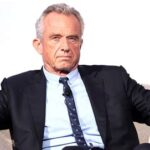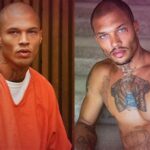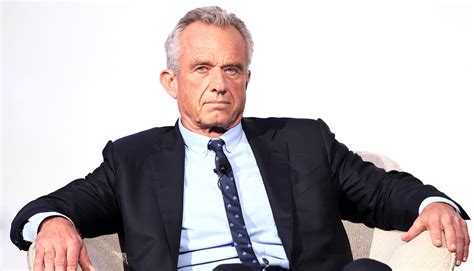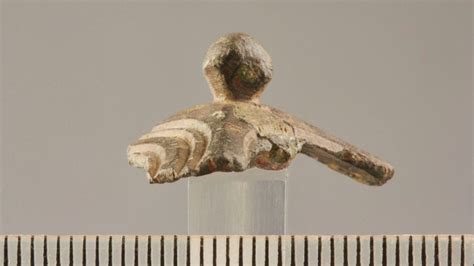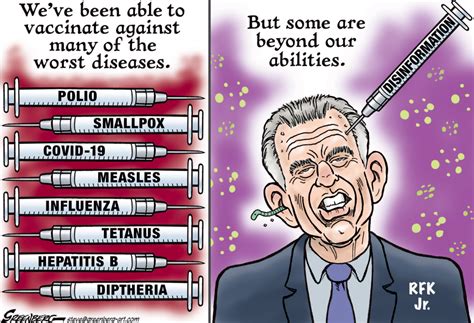
Robert F. Kennedy Jr.’s continued dissemination of vaccine misinformation has drawn sharp criticism from medical professionals, who warn his statements pose a significant threat to public health. Doctors are directly refuting Kennedy’s claims, highlighting the overwhelming scientific consensus supporting vaccine safety and efficacy.
Robert F. Kennedy Jr.’s persistent peddling of vaccine disinformation has ignited a firestorm of criticism from medical experts, who are vehemently denouncing his assertions as dangerous and baseless. Doctors and scientists are actively working to counter Kennedy’s narrative, emphasizing the well-established scientific evidence that supports the safety and effectiveness of vaccines. His high-profile platform, coupled with his willingness to amplify debunked conspiracy theories, presents a clear and present danger to public health, according to leading voices in the medical community. Kennedy’s long history of anti-vaccine activism has been reignited by his current presidential campaign, giving his theories fresh oxygen in the media.
Kennedy’s statements, often riddled with inaccuracies and misrepresentations of scientific data, have been repeatedly debunked by fact-checkers and medical professionals alike. Experts are particularly concerned that his rhetoric preys on public anxieties and undermines trust in established medical institutions, potentially leading to decreased vaccination rates and a resurgence of preventable diseases. This concern is amplified by the echo chamber effect on social media, where misinformation can spread rapidly and unchecked.
“RFK Jr. keeps telling flat-out lies that are demonstrably false,” said Dr. Peter Hotez, a renowned vaccine scientist at Baylor College of Medicine, in an interview. “It’s unconscionable that someone with his platform would continue to spread these dangerous falsehoods.”
Dr. Hotez is one of many medical professionals who have spoken out against Kennedy’s vaccine-related claims. The American Academy of Pediatrics (AAP) and the Centers for Disease Control and Prevention (CDC) have also issued statements reaffirming the safety and importance of vaccines, directly addressing specific points of misinformation promoted by Kennedy.
“Vaccines are one of the safest and most effective tools we have to protect ourselves and our children from serious diseases,” the CDC stated in a recent press release. “The scientific evidence overwhelmingly supports the safety and efficacy of vaccines, and any claims to the contrary are simply false.”
Kennedy’s views on vaccines are not new. He has been a prominent figure in the anti-vaccine movement for many years, often using his platform to promote unsubstantiated claims about vaccine risks. His organization, Children’s Health Defense, has been a leading source of vaccine misinformation online, contributing to a growing climate of distrust in vaccines. However, his current presidential campaign has thrust these views back into the spotlight, raising concerns about the potential impact of his rhetoric on public health policy.
Medical professionals are particularly concerned about the potential for Kennedy’s misinformation to erode public trust in vaccines, leading to lower vaccination rates and a resurgence of preventable diseases. The measles outbreak in 2019, which affected more than 1,200 people in the United States, served as a stark reminder of the dangers of vaccine hesitancy. Public health officials fear that Kennedy’s rhetoric could exacerbate this problem, putting vulnerable populations at risk.
The impact of vaccine misinformation extends beyond individual health decisions. Lower vaccination rates can have broader societal consequences, including increased healthcare costs, reduced productivity, and a greater burden on public health resources. In addition, outbreaks of preventable diseases can disrupt communities and strain healthcare systems, as evidenced by the recent COVID-19 pandemic.
Doctors and scientists are urging the public to rely on credible sources of information about vaccines, such as the CDC, the AAP, and the World Health Organization (WHO). These organizations provide evidence-based information about vaccine safety and efficacy, and they can help individuals make informed decisions about their health.
Furthermore, medical professionals are calling on social media platforms to take steps to combat the spread of vaccine misinformation online. These platforms have a responsibility to ensure that their users have access to accurate information about vaccines, and they should take action to remove content that promotes false or misleading claims. The debate is now about to what extent platforms should moderate health related misinformation and not be accused of censorship.
The scientific consensus on vaccine safety and efficacy is overwhelming. Numerous studies have shown that vaccines are safe and effective at preventing serious diseases. The benefits of vaccination far outweigh the risks, and vaccines have played a crucial role in eradicating or controlling many deadly diseases, such as polio, measles, and smallpox.
“The science is clear: vaccines are safe and effective,” said Dr. Anthony Fauci, former director of the National Institute of Allergy and Infectious Diseases (NIAID). “They are one of the greatest achievements of modern medicine, and they have saved countless lives.”
Despite the overwhelming scientific evidence supporting vaccines, Kennedy continues to promote misinformation and conspiracy theories. His actions are not only irresponsible but also dangerous, and they pose a significant threat to public health. Medical professionals are urging the public to reject Kennedy’s dangerous rhetoric and to rely on credible sources of information about vaccines.
The issue has also become increasingly politicized, with some conservative commentators echoing Kennedy’s skepticism towards vaccines. This politicization of public health can further erode trust in medical institutions and make it more difficult to combat vaccine misinformation. It is essential to depoliticize the issue and focus on the scientific evidence, which overwhelmingly supports the safety and efficacy of vaccines.
The debate over vaccines is not simply a matter of personal opinion. It is a matter of public health, and it has serious consequences for individuals and communities. It is crucial to rely on credible sources of information and to make informed decisions based on scientific evidence. The health and well-being of society depend on it.
Kennedy’s campaign has added fuel to the fire, giving him a prominent platform to amplify his views. While he has the right to express his opinions, experts argue that his position as a presidential candidate carries a special responsibility to avoid spreading misinformation that could harm public health. The media also plays a role in this landscape, tasked with reporting on Kennedy’s claims accurately and providing context to correct any misrepresentations.
The challenge for public health officials is to effectively counter Kennedy’s narrative and rebuild trust in vaccines. This requires a multi-faceted approach, including:
- Clear and consistent communication: Public health officials must clearly and consistently communicate the scientific evidence supporting vaccine safety and efficacy.
- Addressing concerns and anxieties: It is important to address the concerns and anxieties that people have about vaccines, rather than dismissing them outright.
- Building trust in medical institutions: Public health officials must work to build trust in medical institutions and to combat the erosion of trust caused by misinformation.
- Engaging with communities: Public health officials must engage with communities to understand their concerns and to provide culturally sensitive information about vaccines.
- Working with social media platforms: Public health officials must work with social media platforms to combat the spread of vaccine misinformation online.
Combating vaccine misinformation is a complex and ongoing challenge, but it is essential for protecting public health. By relying on credible sources of information, engaging in respectful dialogue, and working together, we can overcome the spread of misinformation and ensure that everyone has access to the information they need to make informed decisions about their health.
The situation surrounding RFK Jr.’s vaccine stance underscores a larger challenge in the digital age: how to combat the proliferation of misinformation and disinformation, particularly when it pertains to sensitive topics like health. Experts believe that a combination of media literacy education, platform accountability, and robust public health messaging is necessary to navigate this complex landscape. Without these measures, the spread of false information will continue to erode public trust in science and medicine, with potentially devastating consequences for global health. The issue is further complicated by the nuances of free speech and the need to balance the protection of open expression with the responsibility to prevent harm.
Frequently Asked Questions (FAQs):
1. What are the main concerns about Robert F. Kennedy Jr.’s views on vaccines?
The primary concern is that Robert F. Kennedy Jr. disseminates misinformation about vaccine safety and efficacy, which undermines public trust in vaccines and could lead to decreased vaccination rates and a resurgence of preventable diseases. His statements often contradict established scientific consensus and have been repeatedly debunked by medical professionals and fact-checkers. “RFK Jr. keeps telling flat-out lies that are demonstrably false,” according to Dr. Peter Hotez.
2. What evidence supports the safety and effectiveness of vaccines?
Numerous studies have demonstrated that vaccines are safe and effective. Organizations like the CDC, AAP, and WHO provide extensive evidence-based information supporting vaccines. These studies show that the benefits of vaccination far outweigh the risks, and vaccines have been instrumental in eradicating or controlling many deadly diseases, such as polio, measles, and smallpox.
3. How does vaccine misinformation spread and what impact does it have?
Vaccine misinformation spreads primarily through social media platforms, websites, and other online channels. The impact can be significant, leading to vaccine hesitancy, decreased vaccination rates, and outbreaks of preventable diseases. This can result in increased healthcare costs, reduced productivity, and a greater burden on public health resources.
4. What are the CDC’s and AAP’s official stances on vaccines?
Both the CDC and the AAP strongly recommend vaccines as one of the safest and most effective tools for protecting individuals and communities from serious diseases. They continuously reaffirm the scientific evidence supporting vaccine safety and efficacy, addressing specific points of misinformation that may cause public concern. The CDC has stated, “The scientific evidence overwhelmingly supports the safety and efficacy of vaccines, and any claims to the contrary are simply false.”
5. What can individuals do to make informed decisions about vaccines?
Individuals should rely on credible sources of information, such as the CDC, the AAP, and the WHO, to make informed decisions about vaccines. These organizations provide evidence-based information and can help individuals address their concerns and anxieties about vaccination. It is also important to be critical of information found online and to avoid sharing unverified claims or conspiracy theories. Consulting with a healthcare professional is always advisable.
In-Depth Analysis and Expanded Context
The controversy surrounding Robert F. Kennedy Jr.’s views on vaccines is deeply embedded in a larger, more complex web of issues, including the rise of online misinformation, the politicization of public health, and the erosion of trust in scientific institutions. To fully understand the significance of this issue, it is essential to delve into these underlying factors and explore their interplay.
One of the primary drivers of vaccine misinformation is the proliferation of false or misleading content online. Social media platforms, in particular, have become breeding grounds for conspiracy theories and unsubstantiated claims about vaccine risks. The algorithms that govern these platforms often prioritize engagement over accuracy, meaning that sensational or emotionally charged content, even if false, is more likely to spread rapidly. This creates an echo chamber effect, where individuals are exposed only to information that confirms their existing beliefs, reinforcing their distrust of vaccines.
The politicization of public health has further exacerbated the problem. In recent years, vaccines have become increasingly entangled in political debates, with some conservative commentators echoing skepticism towards vaccines and questioning the authority of public health officials. This politicization can erode trust in medical institutions and make it more difficult to combat vaccine misinformation. It is essential to depoliticize the issue and focus on the scientific evidence, which overwhelmingly supports the safety and efficacy of vaccines.
The erosion of trust in scientific institutions is another key factor contributing to vaccine hesitancy. In an era of increasing polarization and distrust of authority, many individuals are skeptical of experts and institutions that they perceive as being out of touch or biased. This skepticism can be exploited by those who seek to promote misinformation, further undermining public trust in vaccines.
Addressing these underlying factors requires a multi-faceted approach. Media literacy education is essential for equipping individuals with the skills they need to critically evaluate information and identify misinformation. Social media platforms must take greater responsibility for combating the spread of false content on their platforms, by implementing stricter content moderation policies and promoting accurate information about vaccines. Public health officials must work to rebuild trust in medical institutions by communicating clearly and transparently, addressing concerns and anxieties, and engaging with communities.
The historical context of vaccine hesitancy is also important to consider. Resistance to vaccination is not a new phenomenon; it has existed since the early days of vaccination. In the 19th century, for example, there was widespread opposition to mandatory smallpox vaccination, with some individuals arguing that it violated their personal liberty. These historical precedents highlight the importance of understanding the social, cultural, and political factors that contribute to vaccine hesitancy.
The role of personal anecdotes and testimonials in shaping public perceptions of vaccines cannot be overlooked. Individuals are often more swayed by personal stories than by statistical data or scientific evidence. This is why it is so important for public health officials to engage with individuals and communities on a personal level, to address their concerns and anxieties, and to share positive stories about the benefits of vaccination.
The debate over vaccines is not simply a matter of personal opinion. It is a matter of public health, and it has serious consequences for individuals and communities. It is crucial to rely on credible sources of information and to make informed decisions based on scientific evidence. The health and well-being of society depend on it.
Robert F. Kennedy Jr.’s views on vaccines are not simply a reflection of his personal beliefs. They are part of a larger, more complex phenomenon that has far-reaching implications for public health. By understanding the underlying factors that contribute to vaccine hesitancy, we can develop more effective strategies for combating misinformation and promoting vaccination.
Furthermore, the discussion surrounding RFK Jr.’s perspective draws attention to the ethical dimensions of public health communication. There is a constant tension between respecting individual autonomy and promoting the collective well-being. Public health officials face the challenge of effectively communicating the importance of vaccination without resorting to coercion or undermining public trust. This requires a nuanced approach that prioritizes transparency, informed consent, and community engagement.
The issue of vaccine mandates also intersects with this debate. While mandates have been shown to be effective in increasing vaccination rates, they also raise concerns about individual liberty and government overreach. The appropriate balance between these competing values is a matter of ongoing debate.
Looking ahead, it is clear that combating vaccine misinformation will remain a significant challenge for public health officials. The rise of artificial intelligence and the increasing sophistication of disinformation campaigns make it even more difficult to identify and counter false information. This underscores the need for ongoing vigilance, innovation, and collaboration among public health officials, social media platforms, and media organizations.
The situation also highlights the importance of investing in scientific literacy and critical thinking skills. By equipping individuals with the tools they need to evaluate information critically, we can empower them to make informed decisions about their health and well-being.
Finally, it is important to recognize that the debate over vaccines is not simply a matter of facts and figures. It is also a matter of values, beliefs, and emotions. Addressing vaccine hesitancy requires empathy, understanding, and a willingness to engage in respectful dialogue. By building trust and fostering open communication, we can create a more informed and resilient public health system.



